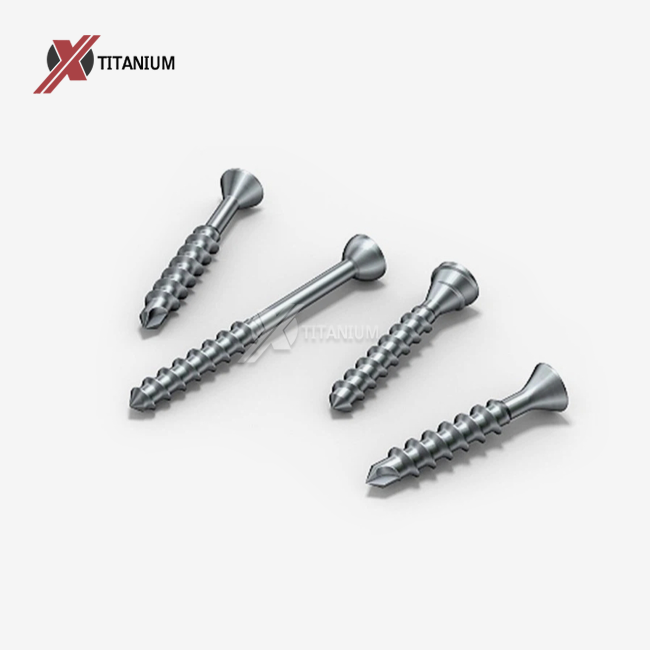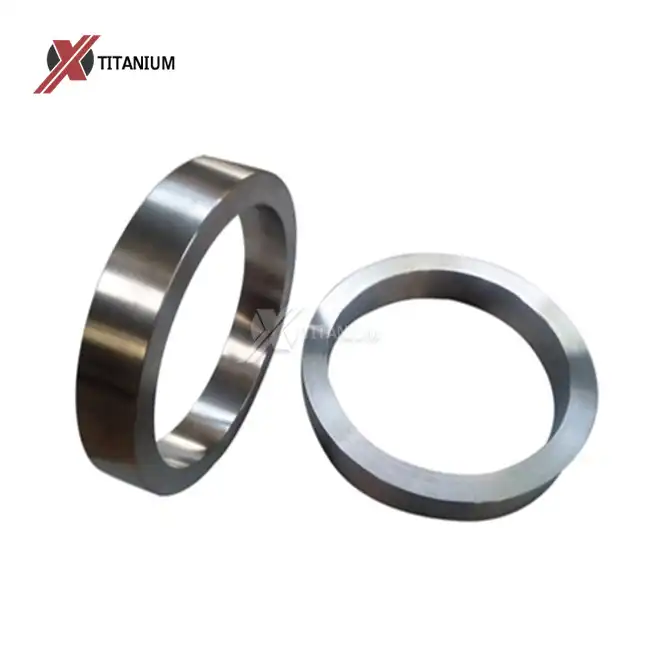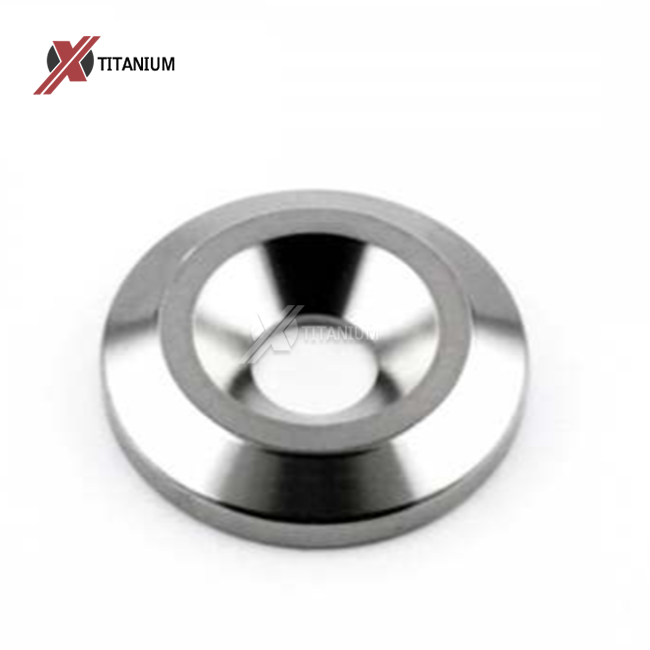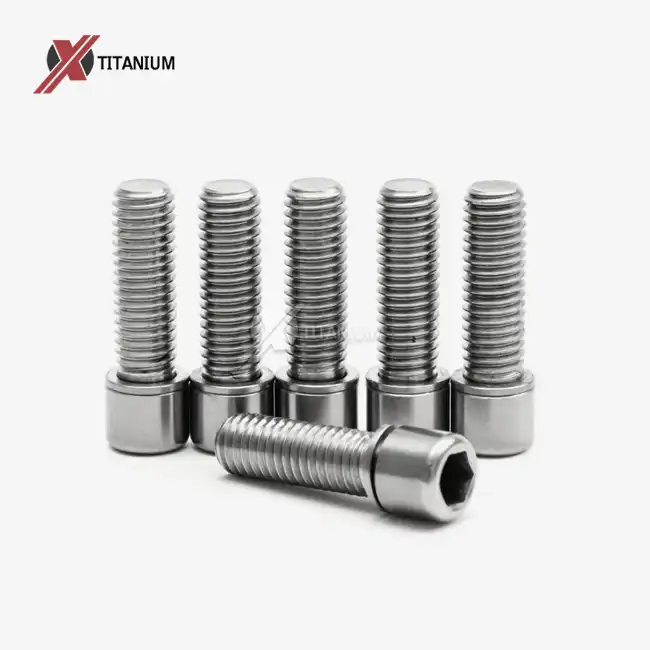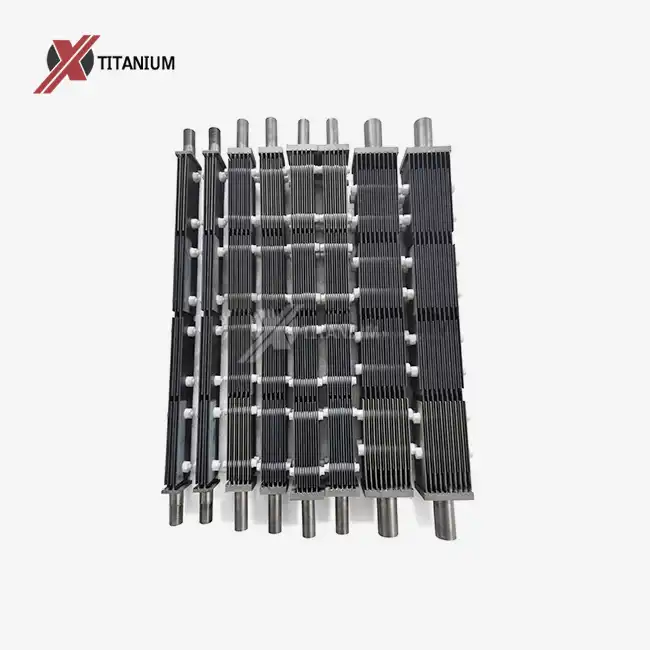Understanding Titanium Medical Screws and Their Biocompatibility
What Are Titanium Medical Screws?
Titanium medical screws are specialized fasteners used in orthopedic and dental surgeries to secure implants or facilitate bone healing. These screws are typically made from Grade 5 Titanium (Ti-6Al-4V), an alloy renowned for its strength-to-weight ratio and corrosion resistance. The unique properties of titanium make it an ideal material for medical implants, as it can withstand the harsh environment of the human body while providing necessary structural support.
The Science Behind Titanium's Biocompatibility
The surprising biocompatibility of titanium stems from its capacity to frame a steady oxide layer when uncovered to oxygen. This layer, fundamentally composed of titanium dioxide, acts as a defensive obstruction between the titanium medical screws and encompassing tissues. This characteristic marvel essentially decreases the hazard of unfavorable responses and contributes to the long-term victory of titanium medical screws in different surgical applications.
Advantages of Titanium in Medical Applications
Titanium's advantages in medical applications extend beyond its biocompatibility. Its low density, high strength, and resistance to corrosion make it an optimal choice for long-term implants. Moreover, titanium's modulus of elasticity is closer to that of human bone compared to other metals, reducing the risk of stress shielding and subsequent bone resorption. These properties, combined with titanium's ability to osseointegrate - directly bond with bone tissue - contribute to its widespread use in orthopedic and dental surgeries.
Potential Complications with Titanium Medical Screws
Allergic Reactions to Titanium
While titanium allergies are exceedingly rare, they can occur in a small percentage of patients. Symptoms may include inflammation, redness, or pain around the implant site. It's important to note that many reactions attributed to titanium may actually be responses to trace amounts of other metals in the alloy, such as nickel or vanadium. Patients with known metal sensitivities should discuss their concerns with their surgeon prior to receiving titanium implants.
Infection and Implant Failure
Infection remains one of the primary concerns with any surgical implant, including titanium medical screws. While titanium itself does not promote bacterial growth, the presence of any foreign object in the body can potentially serve as a site for infection. Proper sterilization techniques and post-operative care are crucial in minimizing this risk. In rare cases, severe infections may necessitate the removal of the implant.
Mechanical Complications
In spite of the fact that titanium restorative screws are outlined for toughness, mechanical disappointments can happen beneath certain circumstances. Components such as disgraceful arrangement, over the top stretch, or fabricating absconds may lead to screw extricating or breakage. These complications are moderately unprecedented but can require extra surgical mediation if they happen. Normal follow-ups and adherence to post-operative rules can offer assistance distinguish and address potential mechanical issues early.
Minimizing Risks and Ensuring Successful Outcomes
Pre-operative Considerations
Successful outcomes with titanium medical screws begin long before the surgical procedure. A thorough patient history, including any known metal allergies or previous reactions to implants, is crucial. Additionally, advanced imaging techniques can help surgeons plan optimal screw placement, reducing the risk of mechanical complications. In some cases, allergy testing for titanium or its alloying elements may be recommended for patients with a history of metal sensitivities.
Surgical Best Practices
The success of titanium medical screw implantation heavily relies on surgical technique. Adhering to strict sterile protocols when handling titanium medical screws minimizes the risk of infection. Precise placement and proper torque application during titanium medical screw insertion are essential to ensure stability and prevent loosening. Some surgeons may opt for computer-aided navigation systems to enhance accuracy, particularly in complex cases or delicate anatomical areas.
Post-operative Care and Monitoring
Vigilant post-operative care plays a vital role in the long-term success of titanium medical screws. Patients should follow their surgeon's instructions regarding wound care, activity restrictions, and follow-up appointments. Regular monitoring through clinical examinations and imaging studies can help detect any complications early. In the rare event of an adverse reaction or mechanical failure, prompt intervention can often resolve issues without compromising the overall outcome.
Conclusion
Titanium medical screws have revolutionized orthopedic and dental surgeries, offering a combination of strength, biocompatibility, and durability that few other materials can match. While the risk of rejection is minimal, understanding potential complications and taking proactive measures can further enhance the success rates of these implants. As medical technology continues to advance, we can expect even more refined titanium alloys and improved surgical techniques to further minimize risks and optimize patient outcomes.
For more information about titanium products and their applications in medical and industrial fields, please contact us at info@cltifastener.com or djy6580@aliyun.com. Our team at Baoji Chuanglian New Metal Material Co., Ltd. is dedicated to providing high-quality titanium solutions for a wide range of needs.
